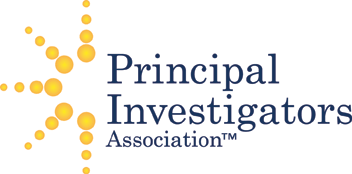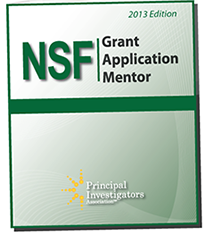 |
Best-Seller! NSF Grant Application Mentor: An Instructional Manual
This unique 217-page, how-to manual coaches you on how to optimally prepare the vital components of your NSF grant application one section at a time! |
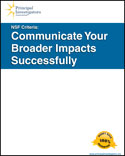 |
NSF Criteria: Communicate Your Broader Impacts Successfully
The concept of “broader impacts” is tricky for most researchers to understand — much less communicate it effectively in their NSF grant proposals. The agency even admits that broader impacts is a tough concept for researchers. |
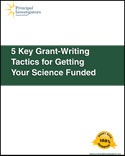 |
5 Key Grant-Writing Tactics for Getting Your Science Funded
You already have a great research idea, and now you just have to get it funded. Writing convincing, compelling and competitive proposals is an indispensable skill for every scientist. With only 1 in 5 grants receiving NIH or NSF awards, you need every available tool to get the grant you deserve. |
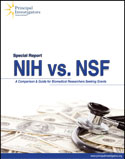 |
NIH vs. NSF: A Comparison & Guide for Biomedical Researchers Seeking Grants
This thorough special report takes a closer look at each of these funding agencies, their missions, size, budgets and scopes of operation, so you can gain a clear understanding of the criteria they use and steps they follow when choosing the projects they fund. |
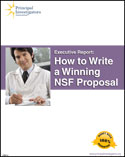 |
How to Write a Winning NSF Proposal
Addressing Intellectual Merit and Broader Impacts in your NSF grant application is the crucial element to drafting not only a proposal that reviewers will view favorably, but also one that the agency won’t return to you without even reviewing it. |
 |
Intellectual Property and Patents How do you go from a discovery in your laboratory to intellectual property (IP) on a balance sheet? It’s trickier than many would guess. A scientist might assume something isn’t IP when it very well might be, or just the reverse. |
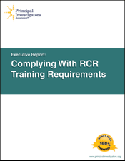 |
Complying With RCR Training Requirements
In an effort to demonstrate their continued commitment to ethics instruction, the NSF and NIH have mandated that institutions develop a plan for Responsible Conduct of Research (RCR) instruction. |
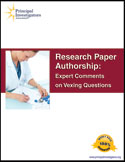 |
Research Paper Authorship
As you consider publishing, when is not nearly as important as why, experts say. You should always publish promptly, of course, and there may be rare extenuating circumstances when you must publish before you feel you’re fully ready. But experts generally agree that the decision on when to get your results into print should be driven by the science — not simply your desire to see your name in the high-end journals as often as possible. |
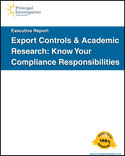 |
Export Controls & Academic Research: Know Your Compliance Responsibilities
Export controls may seem to concern only businesses and shipping firms that send products and technologies overseas. But academic research plays an integral role — and your institution could easily come under fire for violating these laws if you don’t have strict compliance procedures in place. |
